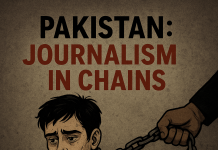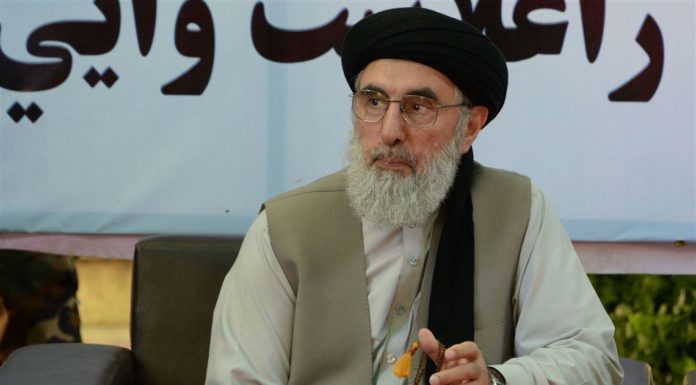By Ashrafuddin Pirzada
In a rapidly evolving digital age, Pakistan stands at a pivotal crossroads. A nation of over 240 million people, more than half of whom are under 30, is witnessing an unprecedented surge in technological integration across governance, economy, education, and civil society.
From Artificial Intelligence (AI) in the judiciary to satellite surveillance in forest management, digitalization is rewriting Pakistan’s development narrative. But alongside this progress, major concerns around policy coherence, digital rights, cybercrime and regulatory uncertainty persist. As the state attempts to regulate a volatile technological landscape, questions of inclusivity, transparency, and accountability are becoming louder than ever. Data collected from various sources made public by Freedom Network reveals that Pakistan is passing through a new digital phase of cybersecurity and digital media potential issues. The report is categorized into main indicators.
Governance in the age of algorithms
Pakistan’s march toward digital governance has taken on notable momentum. The federal and provincial governments have launched initiatives to digitize education, public safety, law enforcement and environmental monitoring. In Punjab, systems such as the thermal forest surveillance and biometric salary attendance in Khyber Pakhtunkhwa for the government employees are also showcasing a shift toward e-governance efficiency.
Meanwhile, the Punjab Enforcement Regulatory Authority (PERA) symbolizes a critical breakthrough in gender-centric digital governance. By placing women at the heart of decision-making and enforcement, the authority promises a unique model of inclusive governance.
SUPARCO’s call for participation in Pakistan’s first manned space mission and the upcoming deployment of Pakistani astronauts to China’s space station reinforce a futuristic national ambition. But this forward leap must be grounded in regulatory reform and capacity-building, lest it remain symbolic rather than systemic.
A digital economy waiting to ignite
Pakistan’s startups have raised over $1 billion in the past decade, signalling investor confidence in the country’s digital ecosystem. The Raast digital payment platform reached a whopping Rs6.4 trillion in transactions in the second quarter of 2025, while IT exports grew by 23% in just three months. Initiatives like the Digital FDI Forum 2025, the development of IT parks in districts like Attock and foreign investment pledges totalling $700 million reflect a growing digital economy with immense untapped potential.
The Digital Pakistan Policy 2018, though well-intentioned, lacked actionable goals and remains outdated in the face of rapid tech disruption. The absence of a comprehensive crypto policy, criticized by the Peshawar High Court and the Federal Tax Ombudsman and the Federal Bureau of Revenue’s sluggish response to crypto taxation issues highlight a policymaking void in a high-risk digital domain.
From expression to surveillance
The digital landscape is also becoming a battleground for civil liberties. Journalists, musicians, content creators and rights activists have found themselves booked under the Prevention of Electronic Crimes Act (PECA), often for content deemed controversial or critical of state institutions. The cases of musician Salman Ahmad and lawyer-activist Jalila Haider highlight the state’s growing intolerance for dissent in digital spaces. So far, several citizens and social media influencers and journalists are charged under the ECA Act in Pakistan.
Even state actors are not immune. A Karachi police officer was briefly detained for a social media post criticizing the president, a troubling indication of expanding digital policing. Simultaneously, the Punjab government’s move to electronically tag individuals on the Fourth Schedule raises ethical and legal questions about privacy and surveillance in the name of security.
The formation of the National Cyber Crime Investigation Agency (NCCIA) offers hope for a more specialized response to cyber threats. But to truly protect citizens’ digital rights, Pakistan must move beyond ad hoc legal actions and develop a rights-based digital governance framework.
Connectivity and the Starlink debate
Amid this flux, internet access and affordability remain contentious. As Starlink awaits final regulatory approval from the Pakistan Telecommunication Authority (PTA), telecom operators are wary. While satellite internet promises connectivity in remote regions, its high cost has prompted concerns that it may only serve the elite, not the underserved.
Meanwhile, telecom giants like PTCL and Telenor continue to push for consolidation, hoping mergers will help withstand future disruptions. However, delays in approvals by the Competition Commission of Pakistan (CCP) fuel frustration and uncertainty.
The PTA’s new move to license VPN services and the launch of a Temporary Mobile Registration System for expats and visitors are steps toward modernizing digital infrastructure. But systemic issues like poor rural connectivity, bureaucratic inertia and inconsistent regulatory enforcement continue to hamper digital equity.
Digital defence or digital dystopia?
The Banking Mohtasib resolved over 27,000 fraud complaints in 2024 alone, recovering over Rs1.65 billion. These figures reflect not just the volume of cybercrime but also the gaps in digital awareness and infrastructure. Experts at a sustainable development policy institute dialogue warned that without unified and modern data protection laws, Pakistan’s digital expansion could turn dystopian, endangering financial security, personal privacy and public trust.
AI is another double-edged sword.
While Pakistan’s Supreme Court and provincial governments like Balochistan are exploring AI for efficiency, education and governance, there’s little clarity on ethical safeguards or bias mitigation. The State Bank of Pakistan is drafting AI use guidelines for banks — a move long overdue.
EdTech and AI-powered tools like Khan Academy’s Khanmigo are also transforming education, but only for those with access. Faulty Chromebooks distributed in Islamabad schools point to a deeper issue: digital inclusion requires not just technology, but quality control, maintenance, and training.
Who speaks for the people?
Pakistan’s digital rights advocates and civil society groups remain under immense pressure. Supporting banned movements, criticizing institutions, or even pushing for policy reform can invite state backlash. Yet their role is indispensable in ensuring a human-centred digital future.
International organizations and platforms like the UN, along with domestic actors, are calling for transparency in data governance, equitable internet access and protection of free expression. The real test for Pakistan lies in whether it can bridge the gap between advocacy and action.
The digital equation must add up
Pakistan is not short on digital ambition. From AI in courts and 5G expansion to fintech innovation and satellite space collaboration with China, the country is crafting a new identity — one that looks forward. But the strength of this identity will depend on how inclusively, transparently, and responsibly it is built.
A digital Pakistan must work for its people — all its people. That means universal internet access, safe online spaces, rights-respecting laws, efficient governance and ethical innovation. As technology redefines what it means to govern, learn, trade and live, Pakistan must ensure that no one is left behind in the digital revolution.
The promise is real. So is the peril.? Now is the time for policies and people to meet at the frontier.











